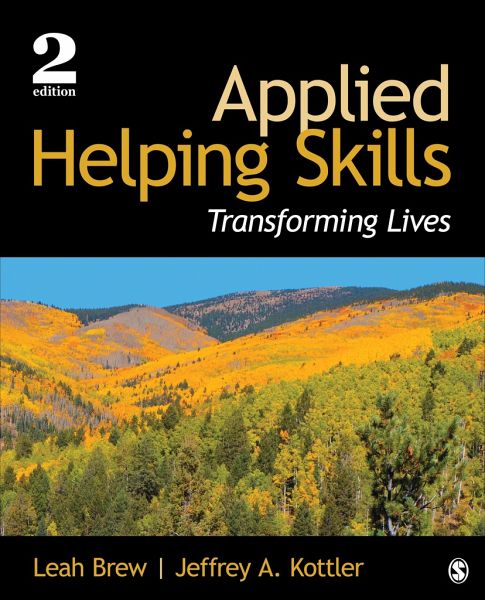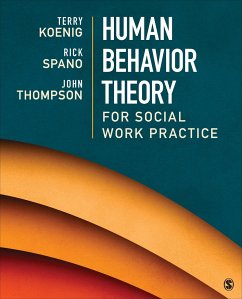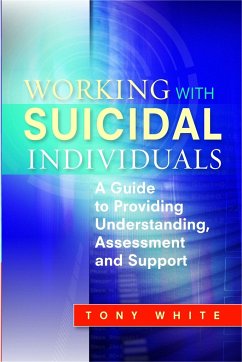
Applied Helping Skills
Transforming Lives
Versandkostenfrei!
Versandfertig in über 4 Wochen
173,99 €
inkl. MwSt.

PAYBACK Punkte
87 °P sammeln!
With its practical, experiential approach, the Second Edition of Applied Helping Skills: Transforming Lives covers the basic skills and core interventions needed to begin seeing clients. By approaching therapy as an art rather than from a prescriptive diagnostic position, this text encourages readers to look at every situation differently and draw from their embedded knowledge to best serve the individuals in their care. Authors Leah Brew and Jeffrey A. Kottler weave humor and passion into their engaging prose, effectively conveying their excitement and satisfaction for doing helping work.












